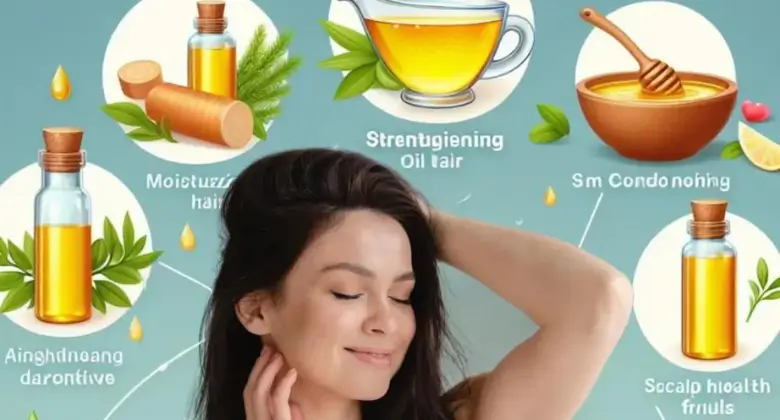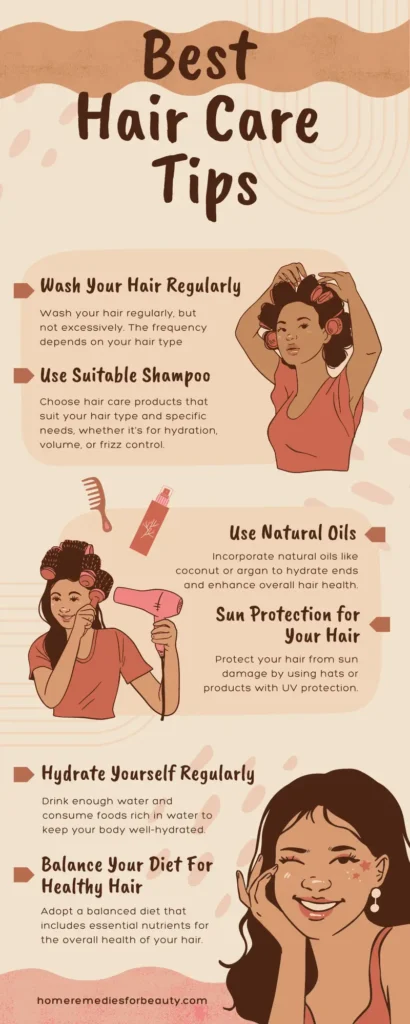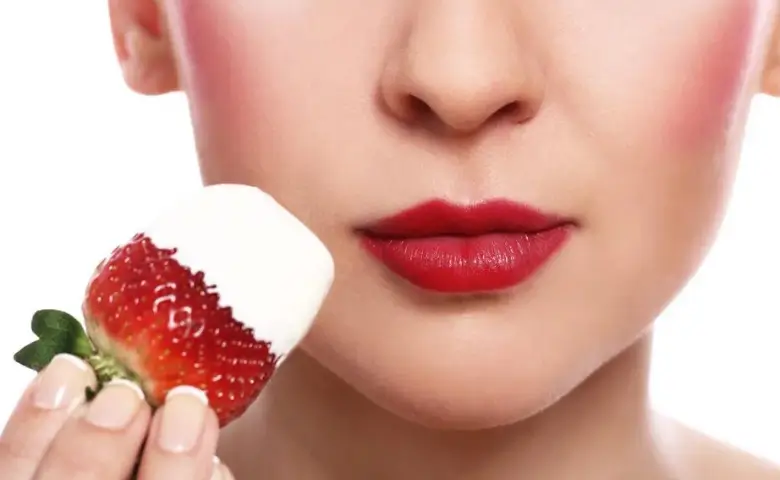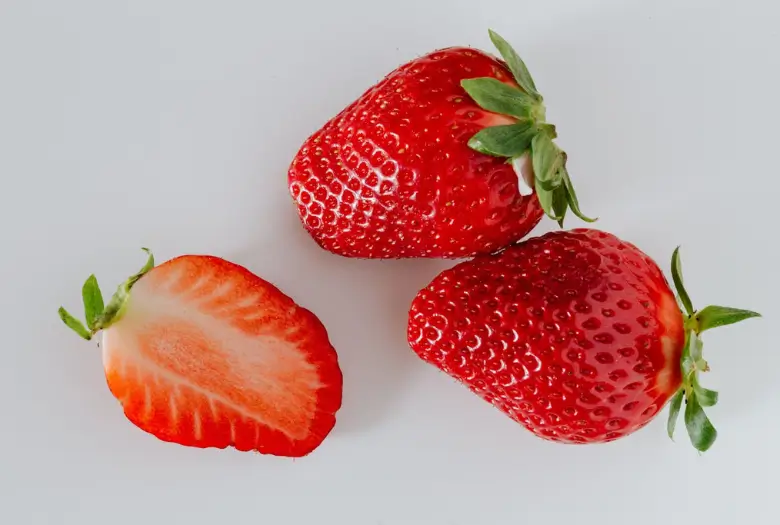Your hair is a beautiful part of your body because it shapes your personality and boosts your confidence. However, it can be frustrating and disheartening when your hair becomes dry and brittle. Essential hair growth oils can prevent this condition from occurring. But is vegetable oil good for hair?
Vegetable oils strengthen fragile hair, repair damage, and promote growth. They keep your hair moisturized, prevent breakage, and rejuvenate its health. This article examines the hair benefits of vegetable oil use. They can make a significant difference in your hair care routine, aiding you in growing stronger and healthier hair.
But before knowing the benefits of vegetable oils, let’s explore;
What is Vegetable Oil? And How is It Beneficial for Your Hair?
Various plants, such as seeds, nuts, grains, and fruits, produce vegetable oil as a type of oil. This ingredient serves as a cooking staple and nourishes the hair. However, avoiding random oils is best because not all oils benefit your hair.
Always use oils suitable for hair care routines, such as olive, argan, and coconut. These vegetable oils are rich in essential fatty acids, vitamins, and nutrients, which can help nourish and moisturize the hair. They strengthen hair, reduce breakage, and improve hair health by adding shine and softness.
Some Popular Vegetable Oils
Many vegetable oils offer unique benefits for hair care. Here are some popular vegetable oils that you can incorporate into your routine.
1. Coconut Oil: Many people know that coconut oil helps to soften and strengthen hair because of its deep moisturizing properties. It also has antimicrobial qualities that can help keep your scalp healthy. The hair shaft absorbs moisture, and it provides hair with thorough hydration.
2. Olive Oil: This is another well-liked hair growth and health option because it is rich in vitamin E and antioxidants, which can facilitate to protect hair from damage. Olive oil is also a good source of monounsaturated fats, which can help recover the overall health of hair.
3. Argan Oil: Argan oil is a luxurious oil extracted from the argan tree. It is rich in vitamin E and important fatty acids, which help to nourish and condition hair. Argan oil is renowned for taming frizz, adding shine, and protecting hair from heat damage.
4. Jojoba oil: Jojoba oil is similar to the natural oils produced by the scalp. It can help to balance sebum production and prevent hair from becoming oily. Jojoba oil is also a good moisturizer for hair.
5. Avocado Oil: Avocado oil has emerged as a popular natural remedy for promoting healthy hair growth and overall health. Its rich composition of vitamins, minerals, and fatty acids helps to nourish the scalp. Its anti-inflammatory properties can soothe a dry, itchy scalp and help prevent dandruff by moisturizing the scalp and reducing flaking.
6. Grapeseed Oil: nourishes hair and scalp, imparting a radiant glow. It’s perfect for those looking to add a natural gloss to their hair without the heaviness.
Important Note: Although coconut oil benefits some hair types, it can result in protein build-up in others. If your hair has difficulty absorbing moisture, avoiding coconut oil or using it carefully is best.
5 Benefits of Using Vegetable Oils for Hair
Nature has blessed us with many natural vegetable oils that contain vitamins, minerals, and fatty acids. They work wonders for our hair and have numerous benefits as well. Let’s explore some of the most significant ones.
1. Moisture and Conditioning
Hair that does not have sufficient moisture can become dry, weak, and prone to breakage. Vegetable oils like sunflower and coconut oils provide deep conditioning treatments. They help retain moisture and restore hair elasticity. They prevent dryness, strengthen hair, and make it stronger against breakage.
2. Scalp Health
A healthy scalp is necessary for healthy hair growth. Some vegetable oils, such as jojoba oil, develop anti-inflammatory and antifungal properties. These can soothe a dry, itchy scalp and fight dandruff.
The National Library of Medicine has conducted many studies on jojoba. They have demonstrated its numerous benefits, such as moisturizing the skin and hair. It also alleviates scalp conditions, treats acne, reduces inflammation and promotes skin health.
3. Improve Hair Growth
Olive oil can help your hair grow better. Studies suggest that compounds in olive leaves and olives, like oleuropein, activate pathways that support hair growth (Study on PLOS ONE). These pathways strengthen hair and make it more resilient, promoting healthier hair.
4. Promoting Scalp Comfort
Many people face discomfort from dry scalp, which can lead to itching and irritation. For scalp comfort, consider natural oils like jojoba, coconut, argan, olive, and sweet almond oil. These oils are known for moisturizing and soothing the scalp, helping nourish and relieve dryness. This leaves hair feeling healthier and more comfortable.
5. Protects Hair from Heat Damage
Vegetable oil helps protect hair from heat damage caused by blow dryers and flat irons. It forms a protective barrier around each strand, reducing the impact of heat. Rich in fatty acids and vitamins, vegetable oil keeps hair smooth, shiny, and less prone to breakage.
How to Use Vegetable Oils on Hair?

Now that you know the advantages of vegetable oils for hair growth. Explore some effective hair mask recipes to boost your hair’s health and energy.
1. Honey and Coconut Oil Mask
Honey and coconut oil provide amazing benefits in hair care, such as boosting moisture and nourishment.
Items You Need:
- Two tablespoons of coconut oil.
- One tablespoon of honey
Usage:
- Mix the coconut oil and honey, and apply from roots to ends.
- Leave it on for 25 to 30 minutes.
- Rinse with lukewarm water, then shampoo
- Use once a week for healthy and hydrated hair.
2. Avocado and Olive Oil Hair Mask
This hair mask is a great way to infuse your hair with the nourishing benefits of avocados and olive oil. Hair receives intense nourishment, becoming soft, radiant, and resilient.
Items You Need:
- One mashed avocado
- Two tablespoons of olive oil
Usage:
- Mix avocados and olive oil.
- Now, apply the mixture to damp hair from the roots to the ends.
- Leave for 25 to 30 minutes.
- Rinse with a mild shampoo.
- Use it every week for the best results.
3. Jojoba and Argan Oil Hair Cure
Jojoba and argan oil are rich in essential nutrients such as vitamin E and fatty acids. Nutrients infuse hair to revitalize and lock in moisture completely. They also help protect hair from damage and maintain hydration to look healthier.
Items You Need:
- Two tablespoons of jojoba oil.
- One tablespoon of argan oil.
Usage:
- Mix jojoba and argan oil in a bowl.
- Apply the mixture to damp hair from roots to ends.
- Leave it on for at least 30 minutes.
- Wash off with your regular shampoo.
- Use it once a week for healthy-looking hair.
Choose the Right Vegetable Oil for Your Hair Type

Not all vegetable oils have the same sort of benefits. The ideal oil for you depends on your particular hair type and requirements.
Fine Hair: Use lightweight oils such as jojoba or grapeseed oil if you have fine hair. These oils penetrate the hair shaft with a lightweight touch.
Thick Hair: This hair type can enjoy richer oils such as argan or coconut oil. These oils offer deeper conditioning and can tame frizz.
Dry Hair: This type of hair requires moisture. Look for oils like avocado or olive oil, rich in vitamins and fatty acids that can hydrate the hair.
Curly Hair: This type of hair is prone to dryness and frizz. Shea butter or coconut oil can help define curls, add moisture and combat frizz.
Things to Remember When Using Essential Oils to Care For Your Hair
Before using essential oils, dilute them. They are intense and can irritate the skin. Always mix essential oils with a carrier oil. Use oils like jojoba, almond, or coconut oil. Please do this before applying them to your hair or scalp.
- Put a bit of the diluted oil on your inner arm and wait 24 hours for any irritation or reaction.
- Don’t use essential oils on pregnant or breastfeeding women or children. The bloodstream can absorb the oils.
- No scientific study has confirmed the safety of breastfeeding women and children. So it’s suggested not to use these oils if you are a child, are breastfeeding or pregnant woman.
Important Note: Talk to your doctor first. This is important if you’re considering using essential oils for hair growth because they can help you decide if essential oils are right for you and recommend a safe and effective way to use them.
Important Tip: Start with a small quantity of oil to test how your hair reacts. Too much oil can leave your hair greasy, so a little goes a long way.
Best Hair Care Tips

Conclusion
Using vegetable oils in your hair care routine can help your hair. So, is vegetable oil good for your hair? Yes, It is! These natural oils, like coconut oil for deep moisture and argan oil for extra shine, have many great benefits.
They help nourish and strengthen your hair, protect it from damage, and keep it healthy and shiny. You can find the best vegetable oils for your hair’s needs by trying out different vegetable oils. Enjoy the advantages of vegetable oils and give your hair the love it deserves.
FAQs
Q.1. Can you put vegetable oil in your hair?
Yes, you can use vegetable oils like coconut, argan, and olive oils in your hair. These oils offer various benefits, such as moisturizing, strengthening, and adding shine to your hair.
Q.2. Is canola oil good for your hair?
Canola oil benefits hair because it’s lightweight and ideal for conditioning without greasiness. It helps to soften and smooth hair and is suitable for various hair types.
Q.3. Which oil is best for my hair?
The best oil for your hair depends on your specific needs. Coconut oil is great for deep conditioning, argan oil adds shine, jojoba oil mimics natural scalp oils, and olive oil is rich in antioxidants. Experiment to find the one that suits you best.
Q.4. Is vegetable oil good for hair with dandruff?
Certain vegetable oils, such as coconut and olive oil have natural properties that can kill bacteria and fungi. They can help with dandruff and also moisturize the scalp, reducing dryness and flakes.
Q.5. How long do you leave vegetable oil in your hair?
You should leave vegetable oil in your hair for 30 minutes to an hour before washing it with shampoo. Adjust the time based on your hair type and the specific oil used.
Read more about the details… vegetable Oil Good For Hair




